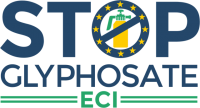Press releases
The European Commission issued its formal response to the #StopGlyphosate European Citizens Initiative (ECI) [1]. It officially recognised the submission of more than one million signatures on 6 October. Tuesday’s response is an answer to the ECI’s three demands for a ban of glyphosate, a reform of the EU pesticide approval process and mandatory EU targets to reduce pesticide use. The Commission proposed action that could fulfil one aspect of one of the three demands.
Alarming concern rises the assessment procedure given in the draft Guidance Document for the identification of pesticides and biocides that are endocrine disruptors (EDs) published yesterday by European Authorities. The document appears to have ‘come from the future’ as it presumes a very high level of understanding of the function of the endocrine system and of how substances cause endocrine disruption, which we currently don't have.
In December 2013, the European Commission restricted the use of 3 highly bee-toxic neonicotinoid insecticides, namely imidacloprid, clothianidin and thiamethoxam. On the 4th anniversary of the partial ban on these substances, new scientific knowledge confirms that these restrictions do not go far enough. Therefore, more than 80 EU NGOs are gathering to ask EU decision-makers to completely ban neonicotinoids without further delay.
December 3 is the anniversary of the worst peacetime chemical disaster in history. Twenty-seven tons of lethal gases leaked from Union Carbide’s pesticide factory in Bhopal, India on this date in 1984, immediately killing thousands of people and poisoning half a million others.
PAN Europe welcomes the European Commission opening up for another round of Common Agricultural Policy (CAP) reform as the current one does not deliver on pesticides. However, we deeply regret that the CAP Communication published today- despite its ambitious title ‘The Future of Food and F
In a reaction report released today, PAN Europe welcomes the European Commission report to the European Parliament and the Council on Member State National Action Plans and on progress in the implementation of Directive 2009/128/EC on the sustainable use of pesticides (SUD).
Representatives of the #StopGlyphosate European Citizens’ Initiative will present their demands at a hearing in the European Parliament at 3:30 pm today. EU commissioner for health and food safety Vytenis Andriukaitis will present an opening and closing statement at the meeting.
South-Tyrol Organisation for Nature Conservation and Environment Protection, in collaboration with PAN Europe, recently published a report[1] on the contamination of local playgrounds by pesticides from industrial apple production. Grass samples reveal that 40% of the playgrounds are contaminated by pesticides, exposing local children to toxic chemicals.
This morning, EU Member States’ representatives of the Standing Committee on Plants, Animals, Food and Feed (SCoPAFF) met in Brussels to vote on Commission’s proposal to re-authorise glyphosate, the active substance of the world’s most used herbicide, for 5-years. As the EU license for glyphosate is due to expire on December 15th, the Commission and Member States are under pressure from all fronts to decide whether to re-authorise this chemical, which has of late sparked wide controversy among scientists, regulators, civil society and the pesticide industry.
The toxic effects of Glyphosate reported in the scientific literature were rarely taken into account in the development of the European pesticide risk assessment report, despite the European Law mandate [1].

